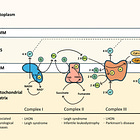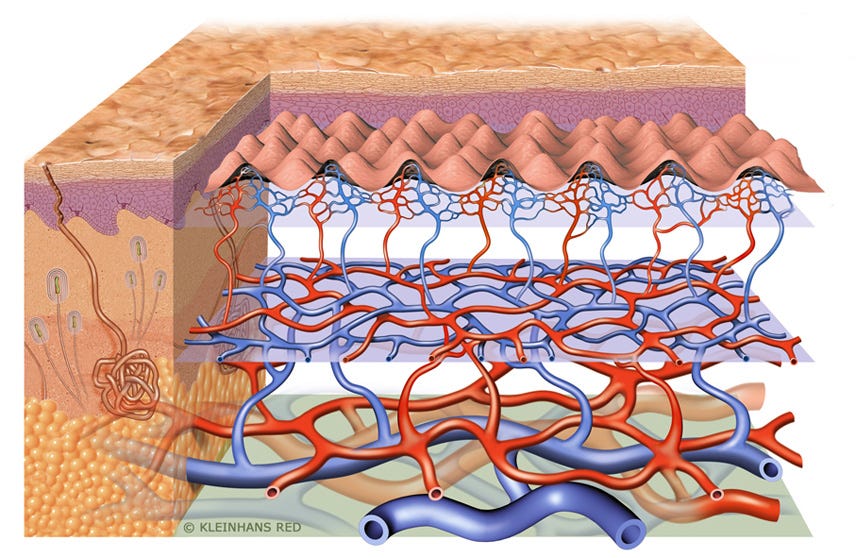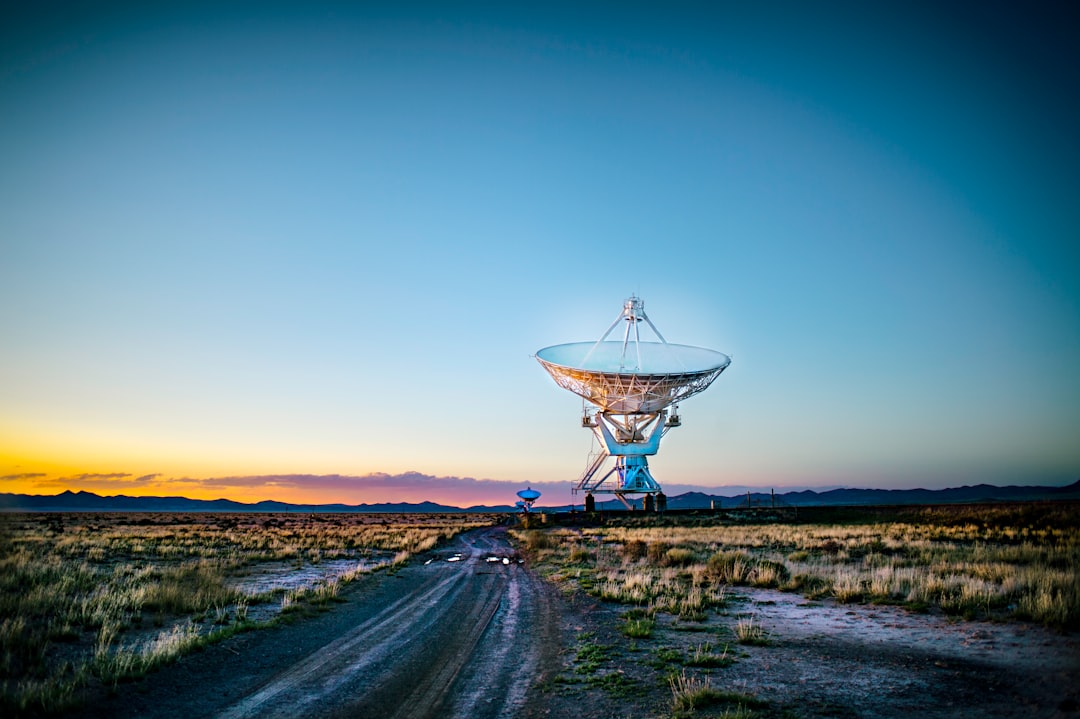What Is Decentralized Medicine?
A human is not a collection of distinct modules which can be diagnosed and treated in isolation from one another. We are one, and we are infinite.

In the world of online health gurus there is rising use of the term decentralized medicine. If you read the work of Jack Kruse, you may have heard the term.
I’m not sure when it was first coined, or by whom, but it has become quite popular in the community of people who insist on living their lives conscientiously, with low time-preference, and sovereignty. Words that can be used to describe a subset of the bitcoin community. As you may know, bitcoin’s protocol is a decentralized one - that is to say, its function and authority is determined by a distributed network of operators.
But, to truly understand what the term means in the realm of medicine, we first need to understand what centralized medicine is.
Centralized Medicine
Centralized medicine is somewhat disparagingly used to refer to the conventional allopathic medical model. Which is the school of medicine that produces MDs.
There are many ways that the MD profession is centralized.
For starters, there are a priori principles which inform the framework for processing the vast field of physiologic information available.
Medical students do not learn everything that there is to know about health & disease. Instead, they ignore the vast majority of thought and information available. Of course, it would be impossible to teach everyone everything there is to know in the span of 4 years. But, that’s only part of the problem.
Another part is the infamous Flexner Report - which was a Rockefeller sponsored attempt at delegitimizing the medical practices which survived up until the 20th century. These schools would be replaced by the allopathic model as the de facto medical “profession.” This is the model that informed student education, and how they would get licensed to practice “medicine.”
Everything else including naturopathy, osteopathy, chiropracty, Ayurveda, Qi-qong…you name it. All were no longer deemed to be valid forms of medical education.
In reading the Flexner report, you can see why this was the case. The report raises concerns with the rising rates of illness (because of disease-causing industrialized environments) and thus a need for a mode of medical education that could scale. They saw a need for “medicine” and a school in which doctors could be produced in a short time period with predictable results.
Whether this was intended to produce generations of sick people chronically dependent on synthetic poisons is up for interpretation.
Another way in which centralization rears its head is in the content that students are expected to memorize and regurgitate. For example, the focus on organ systems (or systems biology) which eventually morph into the fields of specialization that an aspiring doctor will choose for their career. In my opinion, this is yet another hangover of the industrial era.
During this era, specialized function and modularity were in vogue.
Unfortunately for medicine, human beings do not exist as distinct modules which can be thought of and tinkered with in isolation of the rest of the body - or indeed the environment.
We are one, and we are infinite.
Decentralized Medicine
One of the earliest appearances of the word decentralization has its roots in the French Revolution. A central figure in the movement, Alexis de Tocqueville writes:
"Decentralization has, not only an administrative value but also a civic dimension since it increases the opportunities for citizens to take interest in public affairs; it makes them get accustomed to using freedom. And from the accumulation of these local, active, persnickety freedoms, is born the most efficient counterweight against the claims of the central government, even if it were supported by an impersonal, collective will."
There’s a few things we can appreciate from this comment.
First, centralization can be seen as a necessary evil. In that, because most constituents of a whole group take a laissez-faire or unengaged approach to their way of life, a central authority is needed to make sure that some degree of normalcy is maintained.
This is eerily similar to what I hear from many apologists for mainstream medicine…
People want a quick fix.
They don’t want to take responsibility for their health.
They just want a pill.
As you can see, the same holds in health as it does in politics. But, as Tocqueville points out…if people get accustomed to exercising freedom, the result is the most efficient counterweight against the claims of central government.
That is to say, as people are empowered to appreciate, understand and take charge of their health…what results is a framework for healthcare that is more powerful than any drug or surgery that centralized medicine can offer.
So, what is decentralized medicine?
For starters, it is the realization that humans (like all living things) are not simply a collection of modules (organs & organ systems). That we cannot introduce an intervention that targets one organ (or one lab value) and hope that the rest of the body will escape from this interaction unscathed.
In fact, pharmacology shows us exactly this reality.
The doctor gives a person a pill that is supposed to target…for example, high cholesterol. But, what results is a laundry list of toxic effects that far outweigh any benefit resulting from lowering cholesterol.
To wrestle with this reality, centralized medicine calls these “side-effects.” However, the decentralized physician knows that these are simple the effects.
This actually quite the mind-boggling reframing.
If you stop to think about it, the term “side-effect” is rationalizing away the reality that the body is not a collection of distinct modules. To continue with the example of cholesterol…it is important to note that nearly every single cell in your body has the conserved capacity to synthesize cholesterol.
What do you think will happen if you decide to interfere? Just some muscle cramps?
Hell no.
The truth is that we are simultaneously one, and we are infinite.
And so, it behooves us to adopt a framework that primarily focuses on the unity of our body, mind and soul. Beyond that, a framework that recognizes just how blurry the boundary between self and environment are.
The Archetypal Decentralized Entity
Let’s dive into one example to illustrate what I’m on about.
When we look beyond the resolution of the organ, we see cells. Inside every cell are several organelles. One of these organelles are mitochondrion. These are, amongst other things, the energy-producing centers of the cell.
One of the newer fields of medical science which the mainstream has yet to recognize is of mitochondrial disease. There are some researchers who believe that mitochondrial dysfunction is at the root of most modern illnesses.
Why is it so important?
To put it succinctly, life is the energy-dependent structuring of chaotic potential.
As the definition suggest, to build and sustain life we need energy. Always.
Which means we need healthy and robust mitochondria.
Mitochondria are so crucial, we have recently discovered that they are not simply sub-cellular organelles. In fact, they exist as functional and free-floating entities inside of our bloodstream.
Which is very appropriate, because one of the factors that mitochondria depend on for optimal function is the appropriate light. If they exist in our bloodstream (which we now know they do), then they will have a much easier time harvesting the light that penetrates our skin and hits the vascular network below.
What we can conclude from these facts is that any light-modulating technique will have an impact on mitochondrial function or dysfunction.
Which means that you can use light to modulate health. In fact, this is the whole premise underlying photobiomodulation.
What’s even more interesting is that visible light is fundamentally an electromagnetic wave (of a certain wavelength). Which tells us that electromagnetic radiation modulates health.
Why is this interesting?
Because, we know that certain electromagnetic frequencies also activate cell membrane transporters, such as voltage-gated calcium channels (which exist in great numbers on the membranes of mitochondria, amongst other cells).
Do you see where I’m going with this?
Once you move beyond the centralized paradigm, and really take account for the constituents of the universe (and thus, life)…you begin to appreciate an understanding of health and disease which does not depend on the authority and certification of central entities.
You start to realize that improving your health, and becoming sovereign over your body is within your reach. It need not be outsourced to someone (or something) playing a game with all the wrong incentives.
Decentralized medicine is freedom.
Once you rise to the occasion, and get in the habit of exercising this freedom over your body and mind…
Well, to quote Tocqueville:
…from the accumulation of these local, active, persnickety freedoms, is born the most efficient counterweight against the claims of [centralized medicine].







I have been following Jack Kruse for 12/12 and find his information enlightening and helpful - improved clarity of thought and increased energy just from using natural light ( sunrise most days)
I am always interested in new ideas like this substack.
People need to be encouraged to opt out of Medicare. Must hand deliver the notoarized form to local SocSec office but can be done. Save your money. Ask for cash discount. Buy meds overseas. Use your deductible/premiums/copay for decentralized medicine. Less expensive. More medical freedom. Nothing sends a more powerful message then detaching from BigBrother and its cartels. Don't give your body over to the medical internet of things/synbio wban.